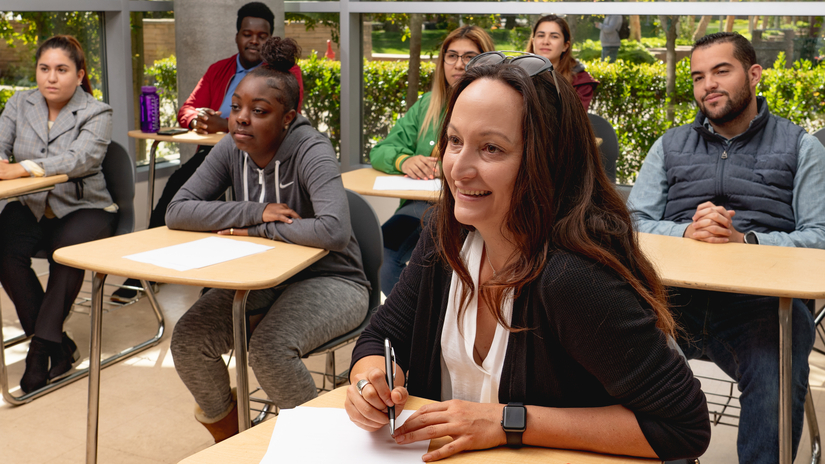VAR PE 61 | Skills Training for Intercollegiate SportUnits: 1Transfer: CSU
This athletic skills training course provides a consistent laboratory for sport specific techniques, skills and necessary conditioning to improve student-athletes for intercollegiate participation. Emphasis is on individual and team skills development when intercollegiate competition is not possible. |
|---|---|
VAR PE 9V | Varsity Basketball for MenUnits: 3Transfer: UC, CSU This basketball course provides a consistent laboratory for the development and enhancement of the skills required to participate in intercollegiate basketball. The course is in conjunction with regular season practice and competitions as scheduled by the local and state community college athletics organizations. This class is recommended for those students that plan on participating on the intercollegiate varsity team. Previous experience on a club or high school team is preferred. One repeat is allowed. Must be enrolled in at least 12 units, including this course. |
VAR PE 9W | Varsity Basketball for WomenUnits: 3Transfer: UC, CSU This varsity basketball course provides a consistent laboratory for the development and enhancement of the skills required to participate in women’s intercollegiate basketball. The course is in conjunction with regular season practice and competitions as scheduled by the local and state community college athletics organizations. This class is recommended for those students that plan on participating on the intercollegiate varsity team. Previous experience on a club or high school team is preferred. One repeat is allowed. Must be enrolled in at least 12 units, including this course. |
WGS 10 | Introduction to Women’s, Gender, and Sexuality StudiesUnits: 3Transfer: UC, CSU C-ID: SJS 120. IGETC AREA 4 (Social & Behavioral Sciences) Satisfies Global Citizenship
Formerly Women’s Studies 10. Introduction to the study of women and men in society, covering comparative issues of social, political, and economic position in the workplace, family, cultural institutions; historical basis of gender based subordination; the female experience; the male experience; relations between women and men; intersections of ethnicity/race, class, sexuality and gender; violence against women; cultural images of women and men; social roles of women and men, LGBTQ identities and movements for social change. |
WGS 20 | Gender, Feminisms, and Social Movements: A Global ApproachUnits: 3Transfer: UC, CSU IGETC AREA 4 (Social & Behavioral Sciences) Satisfies Global Citizenship
Formerly Women’s Studies 20. This course introduces and utilizes feminist theories to examine salient issues that women confront around the world and the variant movements of resistance and social change spurred by these issues. The course includes an examination of both historical and contemporary women’s activism around the globe, including feminist movements that focus on political, economic, cultural, and environmental change, as well as an assessment of the impact of globalization on women’s lives. Particular attention may be given to Third World women, poor women, women of color, immigrant women, incarcerated women, women and war, women with disabilities, and queer people. |
WGS 30 | Women, Gender, and Sexuality in Popular CultureUnits: 3Transfer: UC, CSU IGETC AREA 4 (Social & Behavioral Sciences) Satisfies Global Citizenship
Formerly Women’s Studies 30. This course utilizes the lens of feminist theories to critically analyze how popular culture constructs gender and sexuality and how these constructions become cultural norms and values. Employing feminist theories and feminist analysis, this course examines the relationship between women, gender, sexuality and popular culture. Students will examine historical and contemporary images and roles of women in popular culture (including print, film, television, music, advertising, and consumerism) and situate these images and roles within changing socio-historical, political, and economic contexts. The intersection of gender, race, class, and sexual orientation is examined throughout the course and the relationship between popular culture and feminist movements is emphasized. |
WGS 40 | Introduction to LGBTQ StudiesUnits: 3Transfer: UC, CSU C-ID: SJS 130. IGETC AREA 4 (Social & Behavioral Sciences) Satisfies Global Citizenship
This introductory course examines a broad range of contemporary and historical gay, lesbian, bisexual, transgender, intersex and queer issues in various contexts, such as social, scientific and cultural contexts. |
WGS 8 | Women in the EconomyUnits: 3Transfer: UC, CSU IGETC AREA 4 (Social & Behavioral Sciences) Satisfies Global Citizenship
This course applies economic theory to study women’s decisions regarding labor force participation, unpaid household production, and marriage and fertility. Other topics to be considered include: the gender wage gap, women’s educational attainment, and economic differences for women across race, socioeconomic status, and marital status. Women’s, Gender, and Sexuality Studies 8 is the same course as Economics 8. Students may earn credit for one but not both. |
WGS 88A | Independent Studies in Women’s, Gender, and Sexuality StudiesUnits: 1Transfer: CSU Please see “Independent Studies” section. |
WGS 88B | Independent Studies in Women’s, Gender, and Sexuality StudiesUnits: 2Transfer: CSU Please see “Independent Studies” section. |
WGS 90A | Internship in Women’s, Gender, and Sexuality StudiesUnits: 1Transfer: CSU Please see “Internships” section. |
WGS 90B | Internship in Women’s, Gender, and Sexuality StudiesUnits: 2Transfer: CSU Please see “Internships” section. |
ZOOL 5 | Introductory ZoologyUnits: 4Transfer: UC*, CSU IGETC AREA 5B (Biological Sciences, + LAB)
*No UC credit for Zoology 5 if taken after Biology 21, 22 or 23 and no credit for Biology 4 if taken after Zoology 5 or Botany 1. This general zoology course deals with the major animal groups from protists through vertebrates. Consideration is given to animal form, function, natural history, and behavior. Comparisons are made between groups and are used to stress the principles of evolution, classification, morphology, cell biology, organ system function, genetics, and ecology. Critical and scientific thinking skills are illustrated and developed. |




